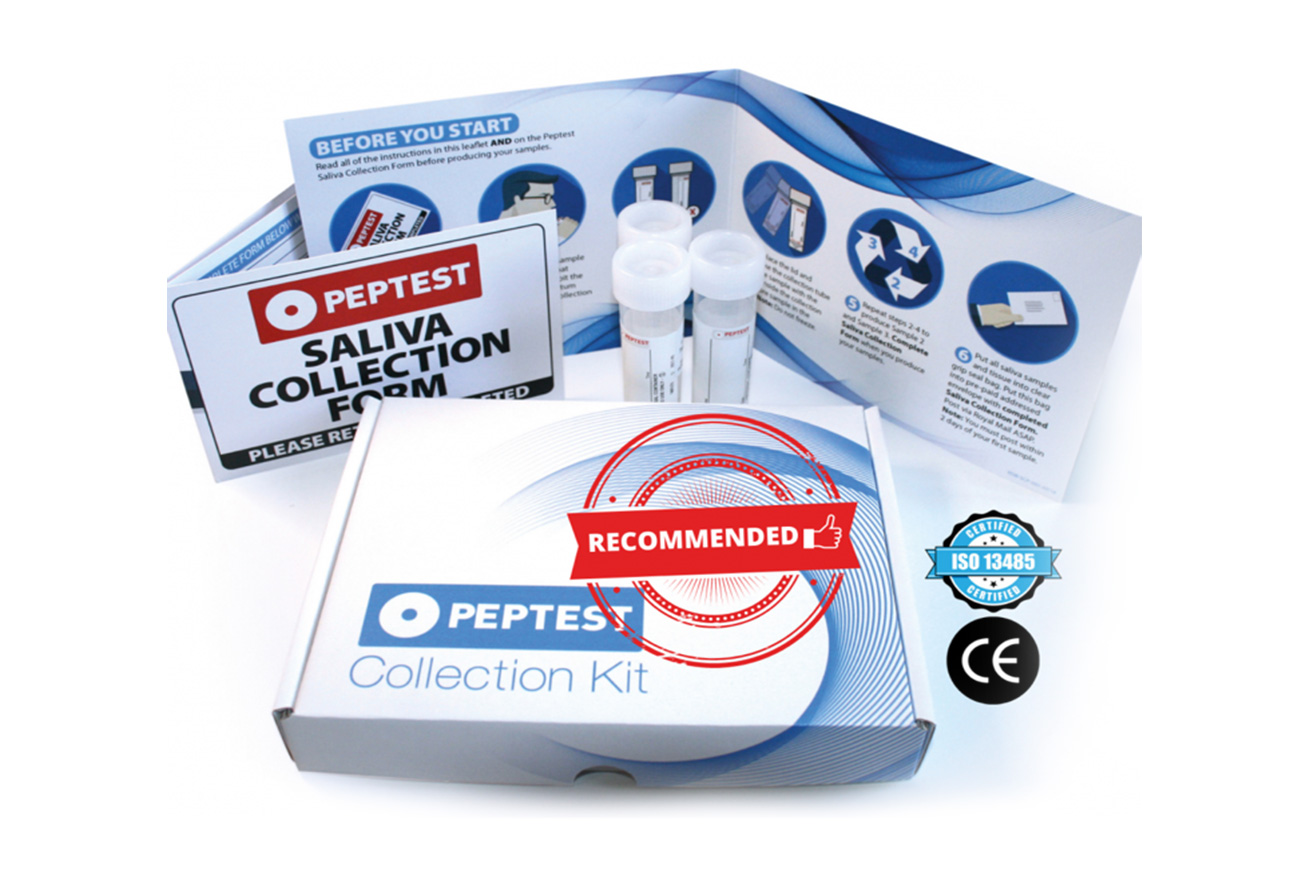What is the Peptest®?
Blog
/
What Is The Peptest
The Peptest® is a painless and inexpensive test that detects the presence of Pepsin in saliva. Pepsin, a word which originates from the Greek word for digestion, is the enzyme responsible for digestion and is produced in the stomach.

Acid has always been thought to be the leading cause of reflux and thus that’s how reflux symptoms have been treated. However, evidence shows us that in addition to acid, pepsin can also cause damage to the oesophagus and laryngeal tissue, as well as indicate whether stomach contents are coming up into the food pipe and beyond.
The test itself is designed to help diagnose gastro-oesophageal reflux diseases from the stomach into the oesophagus, larynx, mouth or airways, by detecting pepsin within a saliva sample. It is important to note that currently there is no scientifically agreed ‘normal’ range for pepsin levels in saliva. However, the test is a cost-effective and non-invasive method for creating a wider picture for diagnosing a patient with reflux symptoms.
Who is the Peptest® for?
A described above, the test was designed to identify reflux disease in patients experiencing ‘classic’ GERD or LPR symptoms – heartburn, regurgitation, persistent cough, sore throat, sensation of a lump in throat, acid taste in mouth etc. As such, there a a few groups for who this test might be helpful:
- Patients experiencing GERD symptoms
Commonly known as acid reflux, GERD is a chronic condition whereby the contents of the stomach (acidic or not) come back up into the food-pipe or beyond. This condition is associated with symptoms such as heartburn and regurgitation, and can lead to a very poor quality of life alongside other complications such as Barrett’s Oesophagus, which in turn can be associated with an increased risk of developing oesophageal cancer. - Patients with LPR symptoms
A patient can present with LPR (silent reflux) symptoms which are different from those in ‘classic’ GERD. LPR symptoms can be varied and effect everything from the throat, mouth, nose, sinuses and airways. - Small Intestine Bacterial Overgrowth (SIBO)
This is caused by a build-up of abnormal numbers of micro-organisms in the normally relatively sterile small bowel which lies between the stomach and the colon. SIBO is sometimes implicated as the cause of chronic reflux/LPR, due to an increased pressure in the abdomen, as well as a number of other symptoms and issues.
Does it work?
As many would naturally assume, most studies so far have found a higher effectiveness of the test in LPR patients rather than GERD patients.
A study on reflux patients (GERD and LPR) patients in 20211 found that a positive Peptest® result in LPR patients was very likely to mean that a patient does have LPR, however a negative result was less likely to show a truly negative diagnosis. The results for GERD patients were significantly poorer as the test result (positive or negative) did not predict the diagnosis of GERD as effectively.
In a more recent study in 2023 of only LPR patients, the Peptest® was shown to be about 70% accurate2 in people with LPR, which means that although it will often correctly diagnose the disease, it will miss many people with reflux and over-diagnose some as well.
It’s still a relatively new diagnostic tool and we need to see with time what peer-reviewed studies will infer into its true accuracy. However, at RefluxUK we believe that it could play an important role in indicating GERD, LPR or SIBO in those suffering from reflux symptoms.
Comment from RefluxUK:
RefluxUK recommends the Peptest® as an indicator of possible reflux disease in people suffering from LPR symptoms, but it is important to note that this is not a true diagnostic tool in reflux disease, and further tests are needed for a formal diagnosis.
Equally, a positive-result from a Peptest® does not guarantee a truly positive diagnosis for reflux, and a negative result does not necessarily mean a patient does not have reflux.
As a relatively cheap and easy test, it is a useful start for LPR patients who are looking for answers to their problems, as well as a possible first step in the diagnostic and treatment process.
To order a Peptest® or book a consultation to discuss your symptoms, please click the link below:
Reviewed by Professor Martin Birchall, Consultant ENT surgeon
- Zeleník K, Hránková V, Vrtková A, Staníková L, Komínek P, Formánek M. Diagnostic Value of the Peptest® in Detecting Laryngopharyngeal Reflux. Journal of Clinical Medicine. 2021; 10(13):2996. https://www.mdpi.com/2077-0383/10/13/2996
- Lechien JR, Bobin F. Variability and accuracy of multiple saliva pepsin measurements in laryngopharyngeal reflux patients. J Otolaryngol Head Neck Surg. 2023; 52(1):66.. doi:10.1186/s40463-023-00670-5
